Comparison of the Most Popular Point and Shoot Film Cameras

Mục Lục
Comparison of the Most Popular Point and Shoot Film Cameras


Last Updated
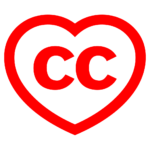
Powered by Creative Commons.
Photo attribution available here.
This site contains affiliate links. We may receive a commission for purchases made through these links.
If you’re new to the world of point and shoot film cameras, welcome! We’ve got all of the info to get you up to speed. And even if you’re already acquainted, there’s sure to be something to catch your eye.
There were many, many 35mm point and shoots produced which can be difficult to find the right camera for you. Whether you’re looking for the best film point and shoot under $100 or the best that money can buy, we’ve got you covered.
We’ve gathered a list of the most popular models, as well as the most important specs you’ll need to compare them. Here’s what we’ve included:
Year: The year that the camera was first released
Weight: How much the camera weighs, in grams (454 grams = 1 pound)
Film Speeds: The range of film speeds accepted by the camera
Size: The dimensions of the camera in millimeters (Length x Height x Depth ) (25mm = 1 inch)
Lens: The focal length and available aperture of the lens
Flash: Does the camera have a built in flash or does it require a separate flash?
Battery: What type and how many batteries required for the camera to function
Shutter Speeds: The range of shutter speeds (although many are selected automatically by the camera)
Price: An estimate of the price of the camera in 2022. Prices are always fluctuating, but this is our best estimate after reviewing the price trends of each camera on eBay.
Jump to: Canon | Contax | Fujifilm | Konica | Leica | Minolta | Nikon | Olympus | Ricoh | Rollei | Yashica
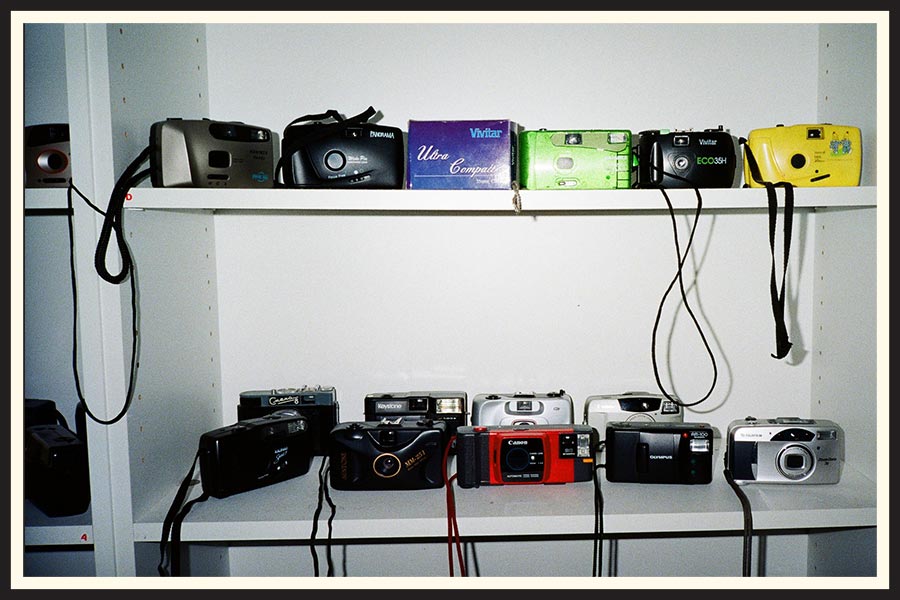
Canon AF35M
Year: 1979
Weight: 405g
Film Speeds: 25-400
Size: 132 x 77 x 54mm
Lens: 38mm f/2.8
Flash: Built-In
Battery: 2 x AA
Shutter Speeds: 1/8 – 1/500
PRICE ESTIMATE: $

One of our favorite cheap point and shoot film cameras, the Canon AF35M may not have the cult status of some of the others on this list, but it’s still a solid little machine. Our only real complaint is the max film speed of 400 can be a bit restrictive in this day and age.
Canon MC
Year: 1984
Weight: 255g
Film Speeds: 64 – 1000
Size: 106 x 65 x 42mm
Lens: 35mm f/2.8
Flash: Separate
Battery: 2 x AA
Shutter Speeds: 1/8 – 1/500
PRICE ESTIMATE: $

Especially with the optional flash attached, the Canon MC serves some serious ’80’s nostalgia. Without the flash, the MC is an easily pocketable point and shoot camera that produces great photos.
Contax T2
Year: 1991
Weight: 295g
Film Speeds: 25-5000
Size: 119 x 66 x 33mm
Lens: 38mm f/2.8
Flash: Built-In
Battery: 1 x CR123
Shutter Speeds: 8s – 1/500
PRICE ESTIMATE: $$$$$

Probably the most beloved series on this list, the Contax T point and shoot film cameras were truly something special. While the T2 is certainly cheaper than its older sibling, prices for any Contax T cameras have absolutely sky rocketed.
Contax T3
Year: 2001
Weight: 230g
Film Speeds: 25-5000
Size: 105 x 63 x 305mm
Lens: 35mm f/2.8
Flash: Built-In
Battery: 1 x CR2
Shutter Speeds: 16s – 1/1200
PRICE ESTIMATE: $$$$$$

The holiest of grails in the 35mm point and shoot world, the Contax T3 is definitely the most sought after compact film camera ever made. We had to make a separate ranking for the price of this camera, because it’s that much more costly than the rest. An incredible piece of gear that has unfortunately been swallowed whole by the hype surrounding it.
Contax TVS
Year: 1994
Weight: 400g
Film Speeds: 25-5000
Size: 124 x 67 x 41.5mm
Lens: 28 – 56mm f/3.5 – 6.5
Flash: Built-In
Battery: 1 x CR123
Shutter Speeds: 16s – 1/700
PRICE ESTIMATE: $$$
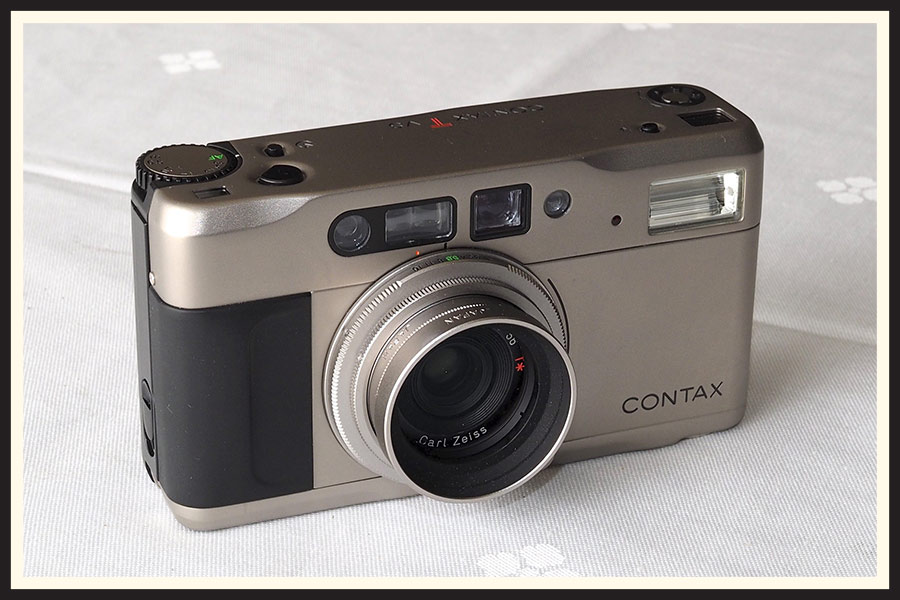
Often left out of Contax’s list of incredible cameras, the Contax TVS deserves a bit more attention. One of the few options on this list without a fixed-length lens, the ability to zoom on a point and shoot is unique and enjoyable. It doesn’t hurt when that zoom happens to be a legendary Carl Zeiss T* lens.
Fujifilm Klasse
Year: 2001
Weight: 250g
Film Speeds: 50 – 3200
Size: 123 x 63.5 x 37mm
Lens: 38mm f/2.6
Flash: Built-In
Battery: 1 x CR2
Shutter Speeds: 1/2 – 1/1000
PRICE ESTIMATE: $$$$
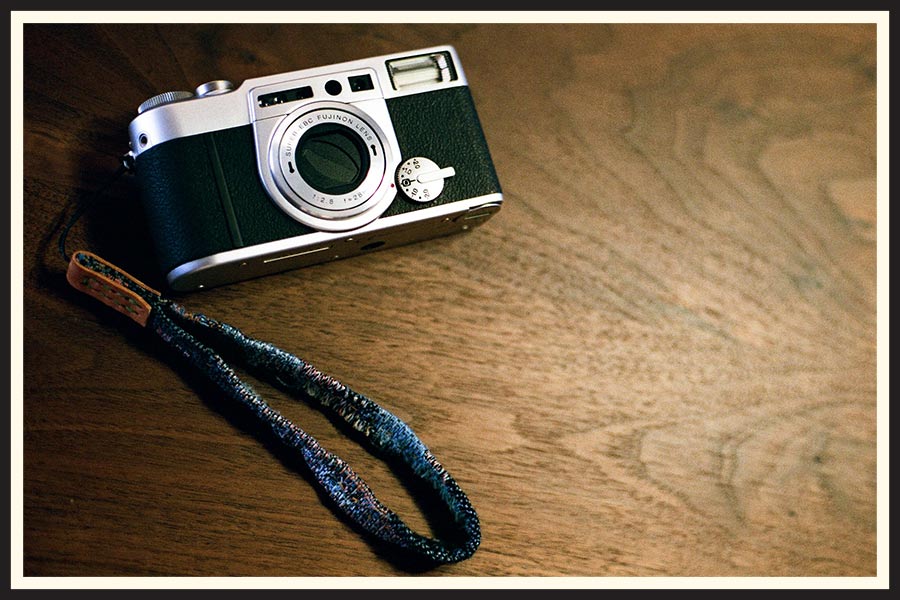
Fujifilm’s entries into the point and shoot film camera market stick out a bit from the rest. The Fujifilm Klasse, with its odd switch on the front of the camera and its f/2.6 aperture, is a unique model that takes incredible photos.
Fujifilm Natura
Year: 2001
Weight: 195g
Film Speeds: 50 – 3200
Size: 109.5 x 58 x 37mm
Lens: 24mm f/1.9
Flash: Built-In
Battery: 1 x CR2
Shutter Speeds: 1s – 1/360
PRICE ESTIMATE: $$$$

The Fujifilm Natura is one of the last released compact film cameras on this list, as seen in its Y2K-era digital camera aesthetics. The version pictured below has a 28mm – 56mm zoom lens, the more popular (and more expensive) version has a 24mm f/1.9.
Konica A4
Year: 1989
Weight: 193g
Film Speeds: 50 – 3200
Size: 117 x 63 x 36mm
Lens: 35mm f/3.5
Flash: Built-In
Battery: 1 x CR123
Shutter Speeds: 1/3 – 1/500
PRICE ESTIMATE: $$
While the Konica A4 is not quite as popular as the Konica Big Mini line it inspired, it’s still a great choice for a 35mm point and shoot. Most specs are the same as the Big Mini, with the biggest difference being the A4 has less range of shutter speeds.
Konica Big Mini
Year: 1990
Weight: 188g
Film Speeds: 50 – 3200
Size: 115 x 63 x 34mm
Lens: 35mm f/3.5
Flash: Built-In
Battery: 1 x CR123
Shutter Speeds: 3.6s – 1/800
PRICE ESTIMATE: $$
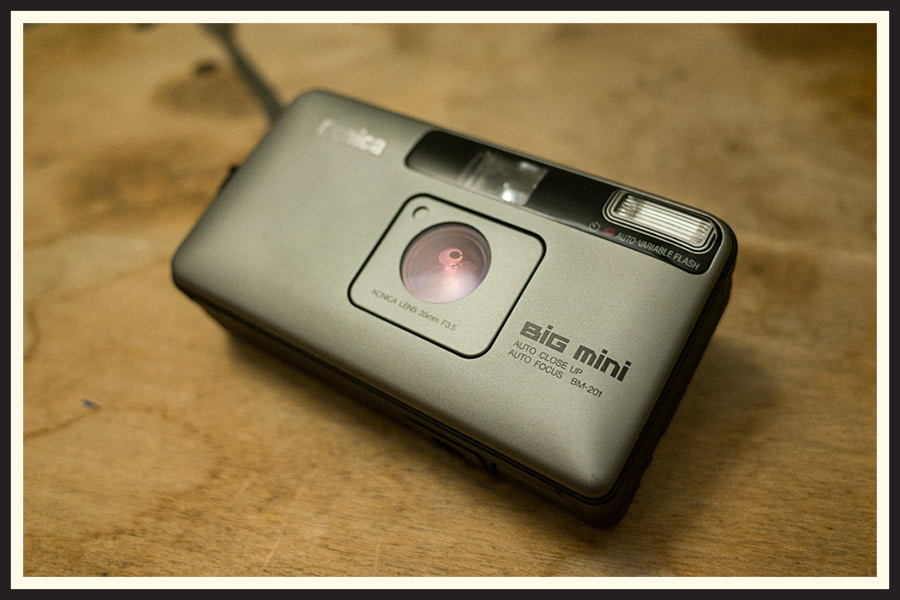
The Konica Big Mini has a simple design and an extremely lightweight body. That lack of weight makes this compact camera a little bit delicate, although it takes great images.
Konica C35AF
Year: 1971
Weight: 380g
Film Speeds: 25 – 400
Size: 112 x 70 x 52mm
Lens: 38mm f/2.8
Flash: Separate
Battery: 2 x AA
Shutter Speeds: 1/30 – 1/650
PRICE ESTIMATE: $

The first point and shoot film camera to feature autofocus, the Konica C35AF was miles ahead of the pack. Still a great choice, the Konica C35 is one of the best point and shoots under $100.
Konica Hexar
Year: 1993
Weight: 495g
Film Speeds: 6 – 6400
Size: 137.5 x 76.5 x 64.5mm
Lens: 35mm f/2.0
Flash: Built-In
Battery: 1 x 2CR5
Shutter Speeds: 30s – 1/250
PRICE ESTIMATE: $$$$

What happens when you combine a 35mm rangefinder with a 35mm point and shoot? The Konica Hexar is what happens. It’s the biggest, heaviest camera on this list, giving it a more substantial feeling in your hands.
Leica Minilux
Year: 1995
Weight: 330g
Film Speeds: 25 – 5000
Size: 124 x 69 x 39mm
Lens: 40mm f/2.4
Flash: Built-In
Battery: 1 x 2C123
Shutter Speeds: 1s – 1/400
PRICE ESTIMATE: $$$$ – $$$$$

Dawning the famous red dot (with a price tag to match), the Leica Minilux is a high end point and shoot film camera. The 40mm lens is one of the longest on this list, a great do-it-all focal length, that also produces super sharp images.
Minolta TC-1
Year: 1996
Weight: 185g
Film Speeds: 6 – 6400
Size: 99 x 59 x 29.5mm
Lens: 28mm f/3.5
Flash: Built-In
Battery: 1 x 2C123
Shutter Speeds: 4s – 1/750
PRICE ESTIMATE: $$$$

Unique in it’s futuristic-looking, pop-up lens design, the Minolta TC-1 is a beautiful point and shoot camera that creates images just as fantastic looking. Beloved for its bokeh, you can’t go wrong with the TC-1.
Nikon 28Ti
Year: 1994
Weight: 315g
Film Speeds: 25 – 5000
Size: 118 x 66 x 36mm
Lens: 28mm f/2.8
Flash: Built-In
Battery: 1 x 2C123
Shutter Speeds: 2s – 1/500
PRICE ESTIMATE: $$$$
Nikon’s “Ti” line of point and shoot film cameras were phenomenal – everything, from the exterior styling to the incredibly accurate metering system, was ahead of its time. The analog display on top of the camera catches our eye every time we see it. The 28Ti comes in black and (obviously) has a 28mm focal length.
Nikon 35Ti
Year: 1993
Weight: 310g
Film Speeds: 25 – 5000
Size: 118 x 66 x 36mm
Lens: 35mm f/2.8
Flash: Built-In
Battery: 1 x 2C123
Shutter Speeds: 2s – 1/500
PRICE ESTIMATE: $$$$
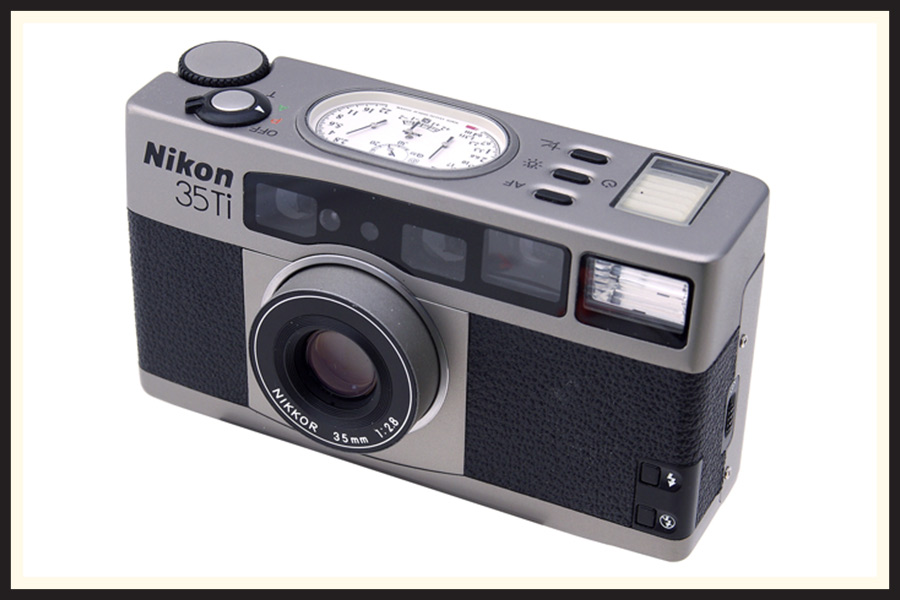
You could’ve probably guessed that the Nikon 35Ti has a focal length of 35mm – the other specs are more or less the same as the 28Ti. This one comes in a silver color with black accents.
Nikon L35AF
Year: 1983
Weight: 335g
Film Speeds: 50 – 1000*
Size: 125.5 x 73 x 53.5mm
Lens: 35mm f/2.8
Flash: Built-In
Battery: 2 x AA
Shutter Speeds: 1/8 – 1/430
PRICE ESTIMATE: $$

*Early models only allowed film speed 50 – 400
The Nikon L35AF is one of our favorite point and shoot film cameras under $200. We’ve written a full review of the L35, check it out here.
Olympus Trip 35
Year: 1967
Weight: 410g
Film Speeds: 25 – 400
Size: 116 x 70 x 57mm
Lens: 40mm f/2.8
Flash: Separate
Battery: None
Shutter Speeds: 1/40 or 1/200
PRICE ESTIMATE: $ – $$
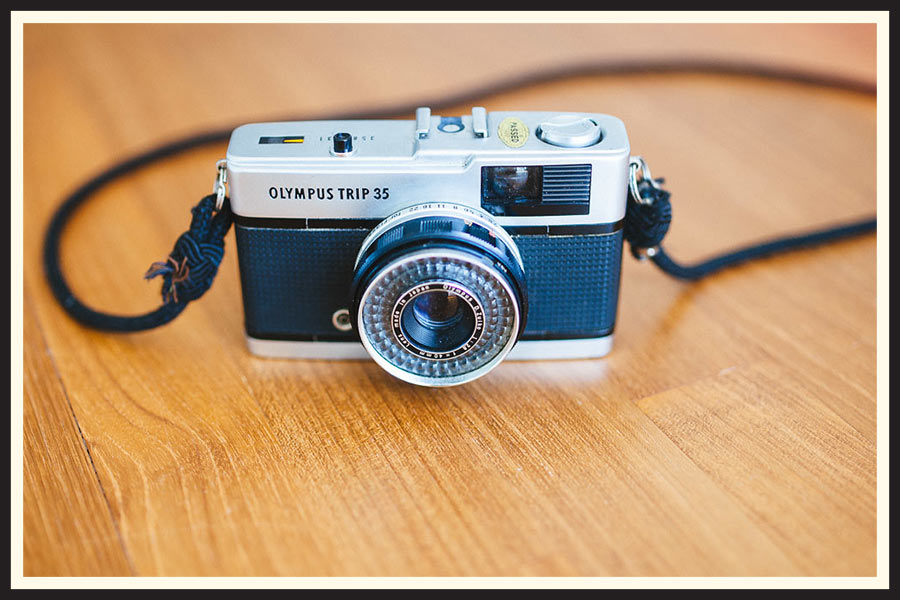
The Olympus Trip 35 is a great option for a cheap point and shoot film camera. Released over five decades ago in 1967, it’s a simple camera with manual focus, only two shutter speeds, and no batteries required to operate.
Olympus XA2
Year: 1980
Weight: 200g
Film Speeds: 25 – 800
Size: 102 x 65 x 40mm
Lens: 35mm f/3.5
Flash: Separate
Battery: 2 x SR44
Shutter Speeds: 2s – 1/750
PRICE ESTIMATE: $$
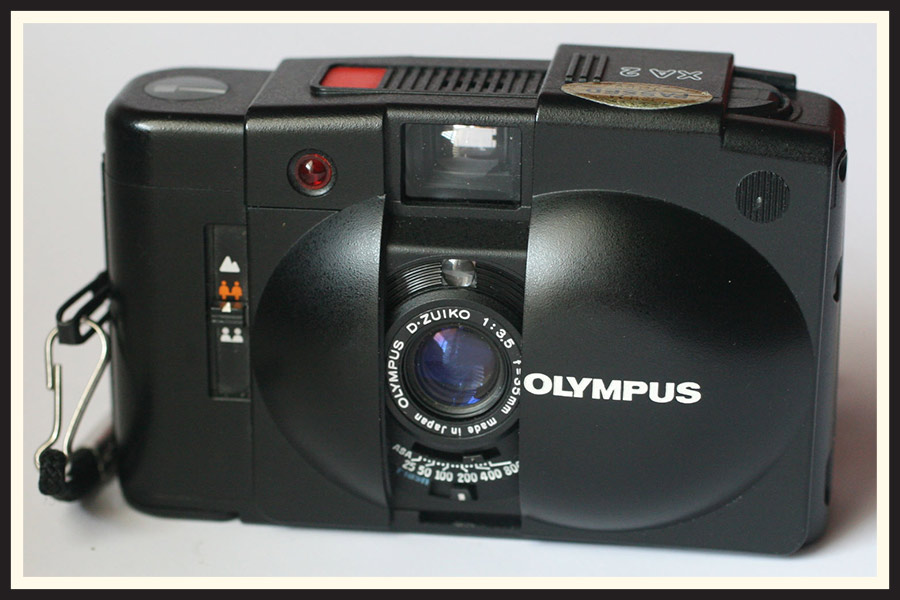
Featuring a new 35mm f/3.5 lens and a three-zone, manual focus system, the Olympus XA2 built on the great reputation of its predecessor. Incredibly compact, the second version is also a bit easier to use than the original XA.
Olympus μ[mju:]-II (Stylus Epic)
Year: 1997
Weight: 135g
Film Speeds: 50 – 3200
Size: 108 x 59 x 35mm
Lens: 35mm f/2.8
Flash: Built-In
Battery: 1 x CR123
Shutter Speeds: 4s – 1/1000
PRICE ESTIMATE: $$$

The Olympus μ[mju:]-II, also known as the Olympus Stylus Epic, is one of the best point and shoot film cameras of all time. Released to great acclaim in the late 90’s, this award winning camera sold exceptionally well, and as a result, there were plenty of used models available for cheap. Well, the secret’s out, and the prices have continued to rise as they become harder and harder to track down.
Ricoh GR
Year: 1996
Weight: 175g
Film Speeds: 25 – 3200
Size: 117 x 61 x 26.5mm
Lens: 28mm f/2.8
Flash: Built-In
Battery: 1 x CR2
Shutter Speeds: 2s – 1/500
PRICE ESTIMATE: $$$

If you’re interested in street photography, the Ricoh GR is one of the best point and shoot film cameras you can find. There have been a handful of versions with minor changes, always maintaining the fantastic 28mm lens and a similar, comfortable size and shape.
Ricoh R1
Year: 1994
Weight: 145g
Film Speeds: 50 – 3200
Size: 117 x 61 x 25mm
Lens: 24mm f/8 /30mm f/3.5
Flash: Built-In
Battery: 1 x CR2
Shutter Speeds: 2s – 1/500
PRICE ESTIMATE: $$

While Ricoh is well known for their GR line of cameras (both film and digital), they produced some other interesting models that are worth checking out. The Ricoh R1, for example, has a dual lens that gives you option to switch between a 30mm macro and a 24mm panorama.
Rollei 35
Year: 1966
Weight: 370g
Film Speeds: 25-1600
Size: 97 x 60 x 32mm
Lens: 40mm f/3.5
Flash: Separate
Battery: 1 x PX625
Shutter Speeds: 1/2 – 1/500
PRICE ESTIMATE: $$$
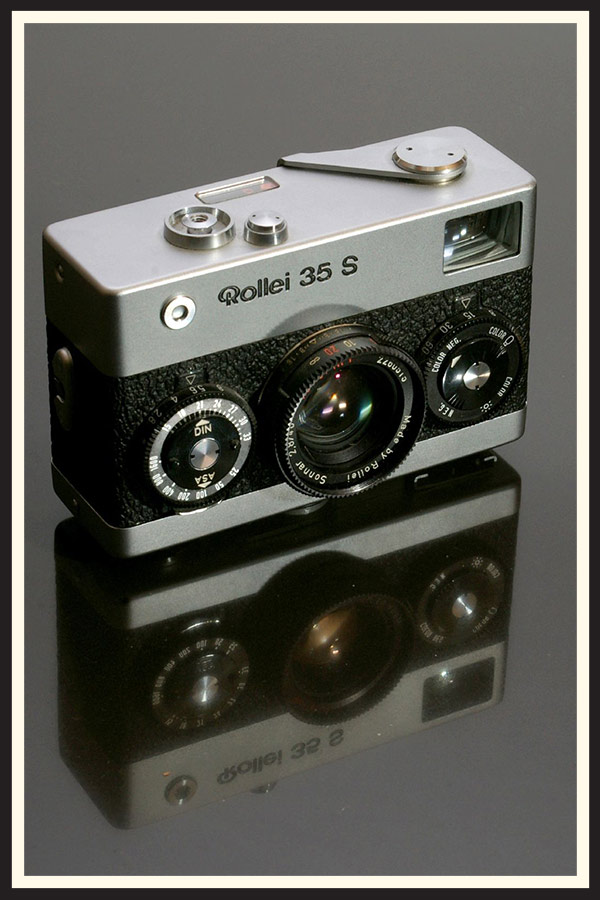
The oldest camera on this list, and one of the smallest, the Rollei 35 is hardly bigger than a deck of cards. A beautiful, ’60’s design in a miniature package, this compact film camera always turns heads.
Yashica T2
Year: 1986
Weight: 300g
Film Speeds: 50 – 1600
Size: 132 x 73 x 48mm
Lens: 35mm f/3.5
Flash: Built-In
Battery: 1 x 2CR5
Shutter Speeds: 1/8 – 1/500
PRICE ESTIMATE: $$
The only Yashica T series camera that’s even remotely affordable anymore is the first iteration, the Yashica T2. Nowhere near as beloved as later versions, the T2 still gives you many of the same features you’d expect from its older siblings.
Yashica T3
Year: 1988
Weight: 275g
Film Speeds: 64 – 1600
Size: 128 x 57.5 x 52mm
Lens: 35mm f/2.8
Flash: Built-In
Battery: 1 x 2CR5
Shutter Speeds: 1s – 1/630
PRICE ESTIMATE: $$ – $$$
Slightly smaller, lighter, and with a wider shutter speed range, the Yashica T3 took everything good about its predecessor and made them even better. The T3 is unique among the other versions for its 35mm f/2.8 lens.
Yashica T4
Year: 1990
Weight: 190g
Film Speeds: 50 – 3200
Size: 118 x 64.5 x 39.5mm
Lens: 35mm f/3.5
Flash: Built-In
Battery: 1 x 2CR123
Shutter Speeds: 1s – 1/700
PRICE ESTIMATE: $$$ – $$$$

Last but not least, the cream of the Yashica crop, the cult-favorite Yashica T4. These fantastic point and shoot film cameras featured, among other things, a Carl Zeiss T* lens and a waist-level viewfinder (located on the top of the camera). Another unfortunate example of an incredible camera that’s become hyped up past the point of return.
Did we miss any important point and shoot film camera models? Let us know your favorites in the comments!















![Toni Kroos là ai? [ sự thật về tiểu sử đầy đủ Toni Kroos ]](https://evbn.org/wp-content/uploads/New-Project-6635-1671934592.jpg)


